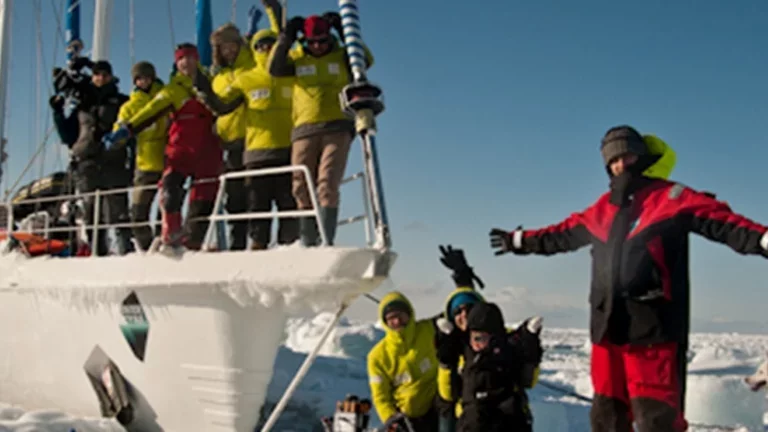The Air Liquide Foundation supports the polar expedition “Under the Pole II” in Greenland
- Press Releases
- Sustainability

The high sensitivity of the Arctic to global warming makes it a particularly interesting test area for assessing the multiple impacts of this phenomenon. As part of its missions related to preserving the atmosphere and improving respiratory functioning, the Air Liquide Foundation is supporting the polar expedition Under the Pole II, whose aim is to study the complete annual season cycle of the Arctic ecosystem, both on the surface and beneath the polar ice field.
Under the Pole is a series of polar expeditions led by the young explorer Ghislain Bardout, whose aim is to explore the hidden face of the Arctic and Antarctic regions in order to improve scientific knowledge of this environment. The Air Liquide Foundation already supported the first expedition to the North Pole in 2010. The second expedition left the port of Concarneau, France in January 2014 for a 22-month journey to Greenland. Daily undersea dives are carried out for collecting visual images and conducting scientific programs.
In total, 12 research programs will be conducted in partnership with several European universities and international researchers. The Air Liquide Foundation is supporting two research programs: one is an environmental research program while the other focuses on respiratory research.
The environmental research program focuses on the interactions between the polar ice sheet, the atmosphere, and the ocean. The expedition will quantify how much carbon dioxide is trapped in the ocean depths. As they form, polar ice traps both CO2 and oxygen. These gases accumulate in pockets of brine, which is super salty sea water. Due to their higher density, these pockets sink, taking the trapped gases down with them to the ocean depths. By measuring them, we can gain a sense of the magnitude of the phenomenon and its impact on climate change.
The respiratory research program focuses on human physiology during dives into very cold and deep water. Several different physiological measurements will be taken while divers are 100 meters beneath the sea, in order to monitor the human body’s tolerance in an extreme environment and also optimize the safety recommendations for divers.
With its grant of €120,000 over two years, the Air Liquide Foundation is helping to finance the purchase of equipment needed for those two research programs. The Foundation is also supplying diving gases and oxygen therapy kits for the expedition.
For more information on the expedition: www.underthepole.com/utp2/eng/
Director of External Communications
+33 (0)1 40 62 58 49
media@airliquide.com